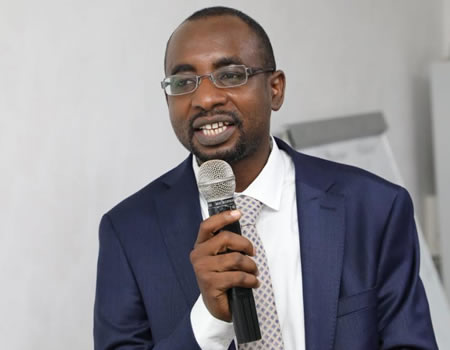The National Information Technology Development Agency (NITDA) has alerted organizations and the public on the increasing rate of cybercrime which it said could cripple the economy of a country.
The Director-General of NITDA, Kashifu Abdullahi while speaking at the opening ceremony of the Information Assurance Workshop in Abuja, said the threats from cybercrime could bring organizations and nations to their knees if unchecked.
He said NITDA had embarked on education and training at the Ministries Departments and Agencies (MDAs) and security agencies to create the awareness of the threat of cybercrime and how to combat it.
“The increasing use of digital technologies is continually exposing sensitive information and critical systems to risks and threats in the cyberspace. Cybercriminals not only try to gain
control over our infrastructure, they also try to steal personal information, official data and mislead citizens with fake news.
“The boom in the digital economy is delicately balanced with equivalent threats that could bring organisations and nations to their knees with colossal damage arising from financial and reputational losses to cybercriminals; hence government and industries need to enhance their cybersecurity in the wake of these evolving threats to online activities.
“Every day, malicious cyber actors infiltrate computers and accounts of individual citizens, businesses, the military, and all sectors of government and most of which we are not even aware of.
“The digital economy leverages on cyberspace, characterized by evolving cyber threats. Thus, cybersecurity is key to enable the growth and progress of the digital economy. Security privacy and trust are critical issues for a thriving digital economy”, NITDA boss said.
A Cybersecurity Expert, Dr Kenneth Okereafor said the programme is a proposal to the government to implement to make our cyber space more secure.
According to him, “the reason is because in other climes, it is very easy to detect when attacks are coming in. We are looking at a situation where Nigeria as a country has a framework in place to detect cybersecurity breaches. Beyond that to also respond proactively.
“One of the ways to do that is to have a single coordinating unit. Though, we may be having an agency regulating IT and Cybersecurity, it is also important to have people we can hold accountable such that these bodies can help in the operationalization around him.
“People are not aware of the various exposures that we have in terms of cybersecurity. And the only way to do that is to have constant training and retraining in cybersecurity.
“Agencies of government need now to take cybersecurity education and awareness more seriously because of the complexity of the data space that we operate in and enlargement and embrace of tech in so many areas, it now beco0mes imperative for agencies of government to be aware of the exposures and then take proper actions”.
“We also as a country need to look into legislation to legitimize all the regulations that need to be applied in cybersecurity. To that extent, it is necessary for government to consider having more legal frameworks to backup other areas of cybersecurity.
The Head of CyberSecurity Unit of NITDA, Dr. Wariowei Dimie the Information Assurance Workshop jointly organized by Secretary to the Government of the Federation (SGF) and NITDA
His words: “The workshop is that the information we keep should be kept confidentiality and the integrity preserved as well as the availability of information whenever and whoever that intends to have access to it.
“We discovered that in public service the world over, cybercriminals are working very very hard to steal information because there is value attached to data. Because the value of data is so important, we are putting up this workshop to make sure that whatever data generated and made available in public service is kept safe from hackers.
“We would make sure that there are certain regulations put in place are adhered to by MDAs, as stated in the circular circulated by the SGF. On implementation, there is plan for monitoring and evaluations. Circulars generated by SGF and Head of Service are usually structured in such a way that compliance can be monitored from the end of the organization and as well as the generating agency”.




